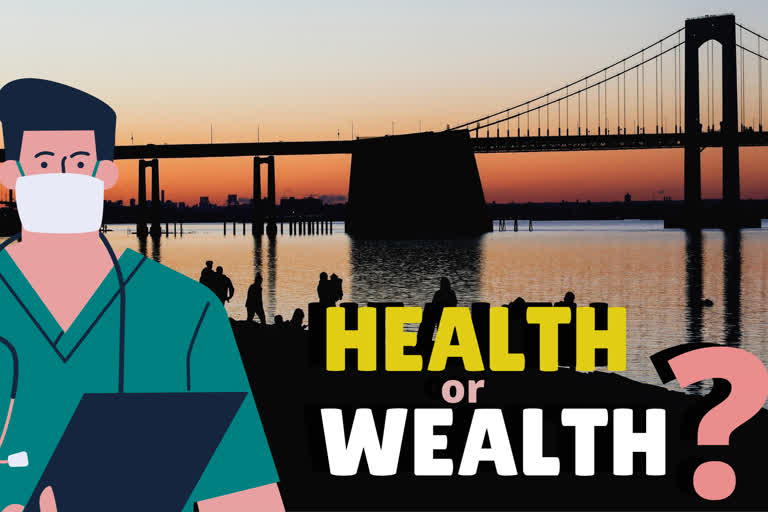Madrid: As the coronavirus pandemic throws millions out of work and devastates economies worldwide, governments are struggling with the delicate balance between keeping people safe from a highly contagious virus and making sure they can still make a living or even have enough to eat.
Workers in some nonessential industries were returning to their jobs on Monday in Spain, one of the hardest-hit countries in the coronavirus pandemic, while in South Korea, officials were warning that hard-earned progress fighting the virus could be eroded by new infections as restrictions ease.
Read also:Signs missed, steps slowed in Trump's pandemic response
The decisions are complicated because each nation is on its own coronavirus arc, with places like Britain, Japan and parts of the United States still seeing increasing daily levels of deaths or infections; France and New York hoping they are stabilizing, albeit at a high plateau of deaths; and hard-hit nations like Italy and Spain seeing declines in the rates of increase.
Spanish Prime Minister Pedro Sánchez said his government must balance its response to the virus crisis that "threatens to destroy lives and at the same time destroy the economic and social fabric of our country."
Read also:World's militaries face a new enemy in virus outbreak
Seeking to restart manufacturing, Spain's government is allowing workers to return to some factory and construction jobs. Retail stores and services remain closed and office workers are strongly encouraged to keep working from home. A prohibition on people leaving home for anything other than groceries and medicine will remain for at least two weeks under the state of emergency.
Spain's economy is more vulnerable to the crisis since it relies on services like tourism that are severely harmed by the pandemic. That means it will likely have a deeper recession," European Central Bank Vice President Luis de Guindos told Spain's La Vanguardia newspaper.
Yet some health experts and politicians argue it's premature to ease the lockdown in a nation that has suffered 17,489 deaths and reported 1,69,496 infections, second only to the United States' 557,000 infections.
But Spain on Monday reported its lowest daily growth in infections in three weeks.
Italy recorded its lowest daily virus death toll in three weeks at 431, putting its total deaths at over 19,800.
In Madrid, José Pardinas took a mask being handed out by police as he walked to work at a moving company that was re-starting operations after a three-week halt.
"The company hasn't given us any protective equipment. I'm quite nervous about contracting the virus because my family can't afford more time without an income," Pardinas said.
Pakistan's Prime Minister Imran Khan, meanwhile, issued a global plea to the world's richer countries and international financial institutions to provide debt-relief for poor countries, where forced lockdowns are crippling already troubled economies and causing widespread hunger for the poor.
His government has launched an ambitious $8 billion program to help the millions near the poverty level. Khan last week relaxed his country's lockdown to allow the construction industry, which employs the vast majority of Pakistan's daily wage earners, to re-open.
German Chancellor Angela Merkel, who has urged a cautious approach to any loosening of restrictions, will hold a video conference with regional governors Wednesday, after the governor of the state with the most infections called for a "road map" to return to normality.
